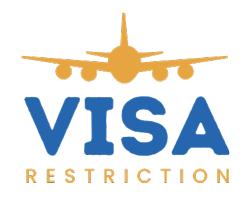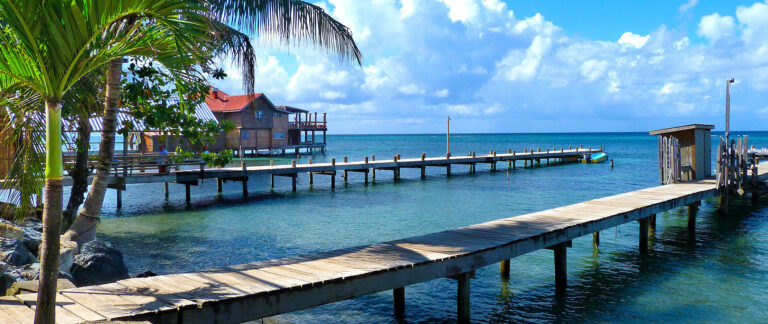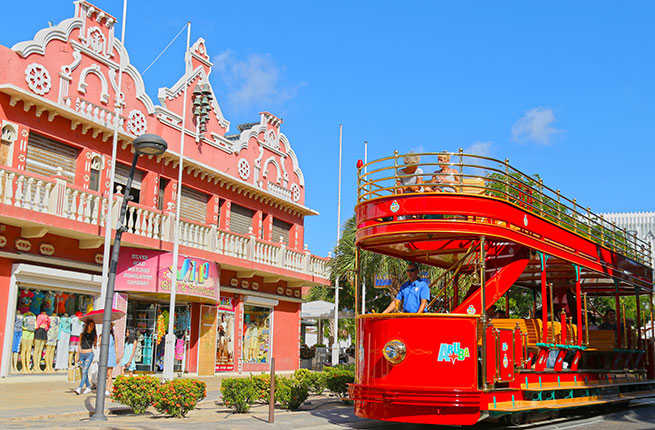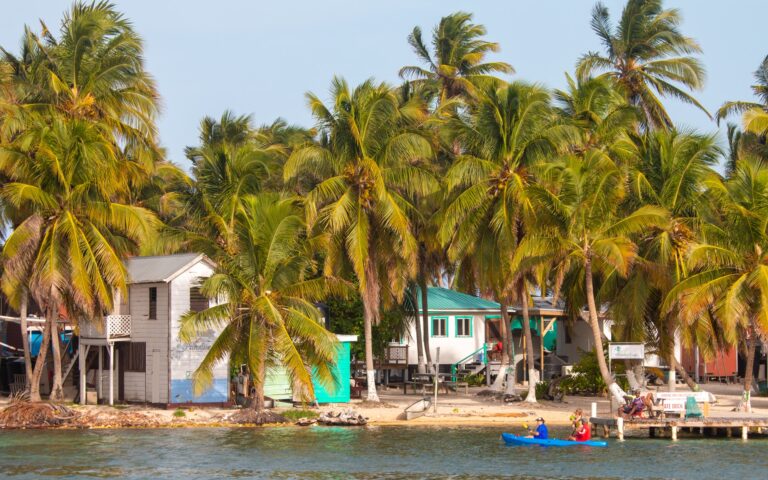Is It Safe to Travel to Turkey: Visitor Safety Overview

Safety Considerations for Traveling to Turkey
Understanding the safety considerations is crucial for anyone planning a trip to Turkey. Here, we cover the most important aspects you need to be aware of, including travel advisory warnings and specific risk areas.
Travel Advisory Warnings
The U.S. Department of State provides travel advisories to inform U.S. citizens of potential risks when traveling abroad. According to the Turkey Travel Advisory issued on October 16, 2024, travelers should exercise increased caution in Turkey due to terrorism and arbitrary detentions.
The advisory includes several key points:
- Be cautious at transportation hubs, markets, government buildings, hotels, clubs, restaurants, places of worship, and parks, as well as airports and major events.
- Possible terrorist attacks could occur in tourist locations with little or no warning.
- Additional caution is advised at public transportation sites and in crowded places due to security concerns.
Here is a quick summary:
| Consideration | Risk Level |
|---|---|
| Terrorism | High |
| Arbitrary Detentions | Moderate |
| Safety in Public Places | Caution Required |
For updated information, visit the U.S. Department of State Travel Advisory page.
Specific Risk Areas
Certain areas in Turkey pose higher risks compared to others. It’s important to be aware of these areas and plan your travels accordingly.
-
Southeastern Turkey: This region, along the border with Syria, is particularly vulnerable to conflicts and terrorist activities. Travel here is generally not recommended.
-
Major Cities: While cities like Istanbul and Ankara are popular tourist destinations, they have also been targets for terrorist activities. Exercise caution in crowded places and public transport hubs.
-
Public Events and Festivals: Major events can be targets for terrorist attacks. Always stay alert and avoid large gatherings when possible.
Below is a table summarizing the specific risk areas:
| Area | Risk Type |
|---|---|
| Southeastern Turkey | Conflict, Terrorism |
| Istanbul | Terrorism, Theft |
| Ankara | Terrorism, Protests |
| Public Events | Terrorism |
Having this information will help you make an informed decision about is it safe to travel to Turkey and take the necessary precautions to ensure your safety during your trip. For more information on general safety in other popular destinations, you might want to read about is it safe to travel to Mexico or is it safe to travel to Jamaica.
Covid-19 Safety Measures
Vaccination Requirements
Turkey has made significant strides in its Covid-19 vaccination efforts. As of now, Turkey has administered approximately 147 million doses of Covid-19 vaccines (Made in Turkey Tours). An estimated 85.25% of the population is fully vaccinated, comprising around 52.9 million individuals.
Particularly noteworthy is Turkey’s focus on the tourism sector. Over one million stakeholders, including tourist guides, restaurant staff, hotel employees, and personnel in tour and travel companies, were prioritized in the vaccination program. This measure ensures that individuals you interact with during your travels in Turkey are likely to be fully vaccinated (Made in Turkey Tours).
| Metric | Value |
|---|---|
| Total Vaccine Doses Administered | 147 million |
| Percentage of Population Fully Vaccinated | 85.25% |
| Number of Fully Vaccinated Individuals | 52.9 million |
As of June 1, 2022, Turkish authorities lifted all travel restrictions, meaning travelers are not required to present vaccination certificates or PCR/antigen tests upon entry (Made in Turkey Tours). However, it is always a good practice to stay updated on the latest guidelines before planning your trip.
Current Covid-19 Situation
While many travel restrictions have been eased, it’s crucial to be aware of the current Covid-19 situation in Turkey. The country has recorded a total of 15,072,747 Covid-19 cases and 98,965 confirmed deaths as of May 31, 2022 (Made in Turkey Tours). The weekly average is relatively low, with about 5 infections per 100,000 people.
| Metric | Value |
|---|---|
| Total Covid-19 Cases | 15,072,747 |
| Confirmed Deaths | 98,965 |
| Weekly Average Infections per 100,000 People | 5 |
The Centers for Disease Control and Prevention (CDC) has put Turkey at a level 3 for travelers from the United States, indicating a high Covid-19 risk. Nonetheless, the CDC advises that it is generally safe for American citizens to travel to Turkey, provided they are fully vaccinated before travel (Made in Turkey Tours).
For further information on specific travel guidelines or updates on the Covid-19 situation in various destinations, you can explore other related entries like is it safe to travel to mexico, is cancun safe to travel, or is it safe to travel to jamaica.
Travel Restrictions and Guidelines
When planning your trip, understanding the travel restrictions and guidelines is crucial to determine is it safe to travel to Turkey.
U.S. Passport Restrictions
For U.S. citizens, there are specific passport restrictions to be aware of when traveling internationally. While Turkey is accessible for most U.S. travelers, it is important to note that U.S. citizens cannot use a U.S. passport to travel to, in, or through North Korea without special validation from the Department of State (U.S. Department of Commerce). Always ensure your passport is up to date and valid for at least six months beyond your intended stay in Turkey.
| Country | Passport Restriction Details |
|---|---|
| Turkey | No special restrictions; passport must be valid for 6+ months |
| North Korea | Requires special validation from the U.S. Department of State |
Recent Circular Updates
As of June 1, 2022, Turkish authorities have released a circular lifting all travel restrictions, making it safe for tourists to visit Turkey (Made in Turkey Tours). This update means there is no longer a requirement for a vaccination certificate or PCR/antigen tests upon entry.
| Date | Update Details |
|---|---|
| June 1, 2022 | All travel restrictions lifted; no need for vaccination certificate or PCR/antigen tests |
It is essential to stay informed about any recent travel advisories or changes in regulations before your trip. For more details on travel safety, you might find our guides on is it safe to travel to mexico and is it safe to travel to jamaica useful.
Tourist Destination Safety
When determining is it safe to travel to turkey, it’s essential to consider the safety of specific tourist destinations. While many areas are secure and welcoming, there are some regions you should avoid for your safety.
Popular and Safe Locations
Several popular tourist destinations in Turkey are deemed safe for travelers. These locations offer rich cultural experiences and beautiful landscapes.
| Destination | Description |
|---|---|
| Istanbul | A vibrant city known for its historical sites like the Hagia Sophia and the Blue Mosque. Generally considered safe for tourists (One Nation Travel). |
| Cappadocia | Famous for its unique rock formations and hot air balloon rides. |
| Pamukkale | Known for its natural thermal pools and striking white travertine terraces. |
| Ephesus | An ancient city with well-preserved ruins, including the Temple of Artemis. |
| Antalya | A coastal city known for its beautiful beaches and resorts. |
For more information about safety in other travel destinations, you might find helpful is it safe to travel to egypt or is it safe to travel to india.
Areas to Avoid
There are certain regions in Turkey where the safety risk is higher, and these areas often have travel advisories in place.
| Area | Reason |
|---|---|
| Regions bordering Syria and Iraq | These areas are often subject to travel advisories due to ongoing conflicts and instability. It is recommended to steer clear of these regions for your own safety. |
| Southeastern Turkey | Similar safety concerns apply due to proximity to conflict zones. |
When planning your trip, it’s crucial to stay updated on the latest travel advisories and exercise caution in the above-mentioned areas. For additional insights into the safety of other destinations, you can refer to is it safe to travel to colombia or is it safe to travel to greece.
By being well-informed about the safe and risk-prone areas, you can enjoy a much safer and pleasant trip to Turkey.
Health and Safety Tips
When considering whether is it safe to travel to Turkey, it’s essential to be aware of various health and safety tips to ensure a smooth and secure trip. These tips include standard safety precautions and advice on food and water safety.
Standard Safety Precautions
Traveling to Turkey generally poses minimal risks for tourists, especially in popular destinations like Istanbul, Cappadocia, Pamukkale, and Ephesus. However, it’s crucial to adhere to certain precautions to enhance your safety. Below are some key recommendations:
- Avoid Public Demonstrations: Steer clear of political gatherings and protests, as they can sometimes escalate unexpectedly.
- Be Cautious in Crowded Places: Tourist spots can attract pickpockets. Be mindful of your belongings and avoid flaunting valuables.
- Stay Alert in Unfamiliar Areas: Exercise heightened awareness in areas you are not familiar with, especially after dark.
- Keep Copies of Important Documents: Store a copy of your passport, travel insurance, and other critical documents in a safe place, separate from the originals.
- Use Registered Taxis and Transportation: Opt for registered taxis or reputable ride-sharing services to navigate the city for safer travel.
- Stay Updated on Travel Advisories: Regularly check government travel advisories for updates on safety conditions.
For detailed precautionary measures, you may also explore related articles like is it safe to travel to egypt and is it safe to travel to mexico.
Food and Water Safety
Ensuring the safety of the food and water you consume is paramount to maintaining good health during your visit. Here are some essential tips:
- Stick to Bottled or Purified Water: While tap water in major cities is generally safe, it’s advisable to drink bottled or purified water to avoid any potential stomach issues.
- Eat at Reputable Restaurants: Opt for well-reviewed and reputable restaurants to reduce the risk of foodborne illnesses.
- Be Cautious with Street Food: While street food can be tempting, ensure it is freshly prepared and cooked thoroughly.
- Wash Fruits and Vegetables: If consuming fresh produce, make sure it’s washed properly. When in doubt, choose fruits that can be peeled.
- Avoid Unpasteurized Dairy Products: Stick to pasteurized dairy products to avoid bacterial infections.
| Aspect | Recommendation |
|---|---|
| Water | Bottled or Purified |
| Restaurants | Reputable and Well-reviewed |
| Street Food | Freshly Prepared and Thoroughly Cooked |
| Fresh Produce | Washed Properly |
| Dairy Products | Pasteurized Only |
For broader food and water safety tips in other destinations, you may explore articles like is it safe to travel to colombia and is it safe to travel to jamaica.
Adhering to these health and safety tips will help ensure that your visit to Turkey is both enjoyable and secure.
Social Issues Impacting Safety
Human Trafficking Concerns
Turkey serves as a prime transit and destination country for human trafficking due to its strategic location between Asia, the Middle East, and Europe. The country faces significant challenges when it comes to combating human trafficking, particularly for sexual exploitation, forced labor, and the exploitation of vulnerable refugee communities, such as women and children. Forced marriages through unofficial religious ceremonies are increasingly used as an economic coping mechanism. State-embedded actors are involved in facilitating human trafficking, adding to the complexity of the issue.
| Human Trafficking Type | Key Victims |
|---|---|
| Sexual Exploitation | Women and Children |
| Forced Labor | Vulnerable Refugee Communities |
| Forced Marriages | Economic Coping Mechanism |
For more information on travel safety, consider reading about is it safe to travel to colombia and is it safe to travel to egypt.
Illicit Trades and Smuggling
Turkey is a significant hub for the illicit trade of excisable goods like tobacco and alcohol, driven by high taxation and economic challenges. Smuggling activities generate substantial revenue for criminal groups and terrorist organizations, contributing to major tax revenue losses for the government. Corrupt state-embedded actors play a critical role in facilitating these smuggling operations across various routes in the country.
| Illicit Trade | Main Goods | Impact |
|---|---|---|
| Excisable Goods Smuggling | Tobacco, Alcohol | Revenue for Criminal Groups, Tax Loss |
| Corrupt Involvement | State-Embedded Actors | Facilitates Smuggling Routes |
If you are considering other travel destinations, you might find our articles on is it safe to travel to thailand and is it safe to travel to jamaica helpful.
Being aware of these social issues is crucial for your safety while traveling in Turkey. Always stay informed and take necessary precautions to ensure a safe and enjoyable journey. For further safety tips and travel updates, explore is it safe to travel to morocco and is it safe to travel to the bahamas.






